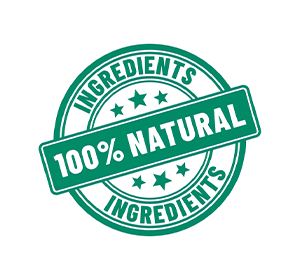"Let our pigmentation treatments help you shine from within."
Skin Pigmentation
Pigments found in the skin play a significant role in determining skin color. Skin pigments can include; those that are naturally present in the skin and those that are not often seen in the skin. In addition to pigments, blood flow in the skin affects its colour.
Call Now - +91 9958318261 Avail Free ConsultationPigments that are naturally found in the skin
- The presence of several chromophores affects skin color
- The most significant pigment is melanin, which is produced by melanocytes
Pigments normally present in the skin
| Chromophore | Color |
|---|---|
| Deoxygenated hemoglobin | Blue |
| Oxyhemoglobin | Red |
Melanin
|
|
Melanocytes
The skin pigmentation, referred to as melanin content, determines the color of the skin. Melanocyte cells, found in the bottom layer of the skin, create melanin pigment, which shields the skin from the harmful UV radiation of the sun. The color of the skin can be impacted by damaged melanocytes. Depending on what is causing it and how the disease develops, it may affect a small portion or the entire body.
Genetic factors determine the amount of melanin in the skin; those with more melanocytes typically have darker skin, while those with fewer melanocytes usually have lighter skin. In addition, numerous factors, such as sun exposure, hormonal changes, skin traumas, and specific medical diseases, can impact this skin condition.
Abnormal Skin Pigments
Sometimes pigments that are ordinarily absent from the skin develop and change the skin color.
These pigments could be:
- Endogenous: like hemosiderin.
- Exogenous: like tattoos, nutritional supplements, topical applications, etc.
| CAUSE | COLOR | |
|---|---|---|
| EXOGENOUS | ||
| Topical applications | Silver nitrate Gentian violet Brilliant green Potassium permanganate Dithranol Iodine |
Black Violet Green Brown Mauve Yellow |
| Drugs | Clofazimine Minocycline Phenothiazines |
Red orange Blue black Slate gray |
| Tattoo pigments | Carbon
Cobalt Chrome Mercury Iron |
Blue Black Blue Green Red Brown |
| Diet | Carotene | Orange |
| ENDOGENOUS | ||
| Hemoglobin derived | Methemoglobin Sulfhemoglobin Carboxyhemoglobin Bilirubin Hemosiderin |
Blue Blue Pink Yellow Brown |
Skin Pigmentation Disorders
These diseases cause the skin to produce either too little or too much melanin, affecting the skin's color. A few common disorders that develop from changes in melanin production are as follows.
- Hyperpigmentation (dark spots)
- Hypopigmentation (light spots)
- Depigmentation (white spots or patches)
Hyperpigmentation
Hyperpigmentation refers to excessive melanin production by the skin and is characterized as dark spots or patches on the skin. Various causes include sun damage, hormone variations, or skin injuries.
Multiple forms of this disorder exist, including:
- Solar Lentigines. Sun spots, liver spots, and age spots are all terms used to describe solar lentigines. They are tiny, black spots that develop on the skin after exposure to the sun. People above the age of 50 are more likely to develop solar lentigines.
- Post-inflammatory hyperpigmentation (PIH). It appears after an injury to the skin, such as acne or a skin infection. Additionally, PIH might develop after specific medical procedures like laser therapy or chemical peels.
- Melasma. It primarily affects women, especially during pregnancy or while taking birth control pills. Brown or gray-brown patches appear on the face due to the disorder, most prominently on the cheekbones, forehead, nose, and upper lip.
- Freckles. An increase in melanin production causes small, flat patches known as freckles to form on the skin. They are more prevalent in those with fair complexion, typically tan or light brown.
Treatment: Although this condition tends to be harmless, some people may want to remove or lessen it. To minimise the impact, especially in people more susceptible to the condition, it's important to wear sunscreen and spend as little time in the sun as possible.

Hypopigmentation
It is when the skin generates insufficient melanin, leaving lighter patches or spots on the skin.
Multiple forms of this disorder exist, including:
- Vitiligo. A skin condition known as vitiligo causes the melanocytes to be attacked by the immune system, resulting in skin color loss. White skin patches that can occur anywhere on the body can result from this. Vitiligo is not genetic and develops later after birth. Herein, leucotricha signifies a condition where the roots and, occasionally, the entire hair strands turn white in this context.
- Albinism. It is a genetic condition that causes skin, hair, and eyes to have less or no melanin. As a result, people with albinism are more sensitive to sunlight and have light skin, hair, and eyes.
- Tinea versicolor. Tinea versicolor is a fungus that can affect the skin and result in hypo- or hyperpigmentation. The chest, back, and arms often appear as white or light brown spots.
- Pityriasis alba. It is a prevalent skin disorder that primarily affects children and produces hypopigmentation. The face, neck, and arms have light-colored patches as a result.
- . It is a disorder that results in tiny, white spots on the skin, most frequently on the arms and legs. Older persons with pale skin are more likely to develop this condition, despite the fact that there is no recognized cause for it.
Treatment:- The underlying cause of this issue will determine the best course of treatment. Albinism cannot be treated; however, people with it should take measures to shield their skin from the sun, such as applying sunscreen and wearing protective clothing. Antifungal drugs can be used to treat tinea versicolor. Idiopathic guttate hypomelanosis and pityriasis alba go away on their own without medical intervention.
Prevention:- Individuals with this condition should protect their skin from the sun and address the underlying problem. Sunscreen and protective clothing can help stop future skin deterioration and may help make the condition look better.

Depigmentation
This skin condition develops when the melanin pigment dramatically decreases, which can cause the human skin to lose its original color. Such a loss of pigment can be temporary or permanent, with a loss of either entire or partial melanin pigment.
Causes of Skin Pigmentation
Numerous factors can contribute to this condition, including:
- Sun exposure: Excessive exposure can increase the synthesis of the pigment melanin, resulting in hyperpigmentation, such as age or sun spots.
- Hormonal changes: Melasma, frequently seen in pregnant women and women on hormonal birth control, is a skin color change brought on by fluctuations in hormone levels.
- Genetics: Some skin pigmentation abnormalities, such as albinism, are hereditary and genetic.
- Injury or inflammation: Injury or inflammation to the skin can result in dark spots or patches of skin due to post-inflammatory hyperpigmentation.
- Medication: Some medicines, such as chemotherapy, can alter skin color.
- Aging: Age-related hypopigmentation or uneven skin tone is a natural effect of the skin's natural loss of melanin as we age.
- Skin conditions: A few skin conditions, like vitiligo, can depigment or lighten the skin.
- Smoking, a poor diet, and insufficient sleep are all examples of lifestyle variables that can affect skin color.

Symptoms of Skin Pigmentation
Here are a few of the typical signs and symptoms:
- Dark spots or patches on the skin
- Light or white patches on the skin
- Uneven skin tone or discoloration
- Loss of skin color in certain areas
- Freckles or moles that change in color or size
- Itching, redness or irritation of the affected skin
- Dryness or flaking of the skin in the affected area
- Swelling or inflammation around the affected area
- A sudden increase in the number of dark spots or patches
Bharat Homeopathy
Consultation Advantages
Each day, over 200 patients engage in conversations with a Bharat Homeopathy doctor to uncover the underlying causes of their health concerns and receive tailored treatment right at their doorstep. Here are the factors contributing to the trust of millions worldwide.

Happy Patients

Doctors

Safe & Natural

Side Effects
